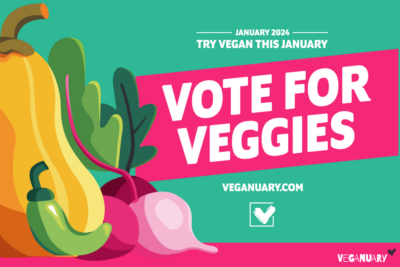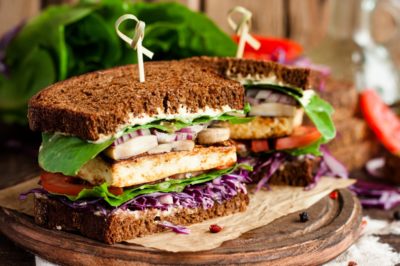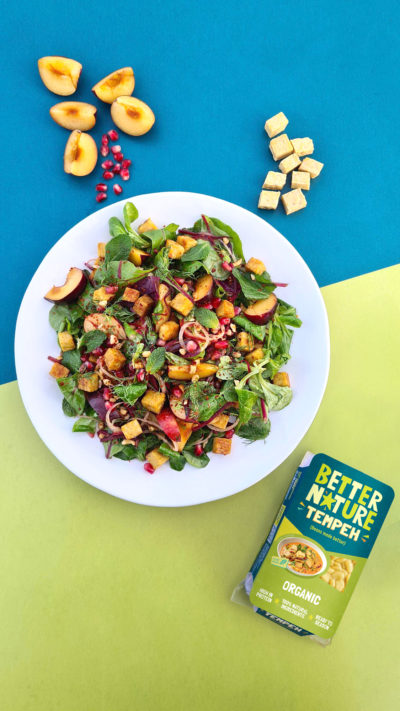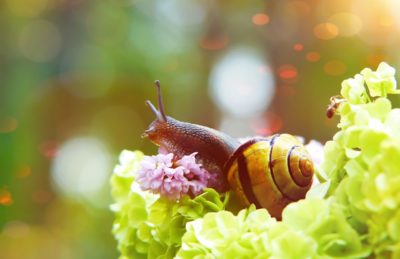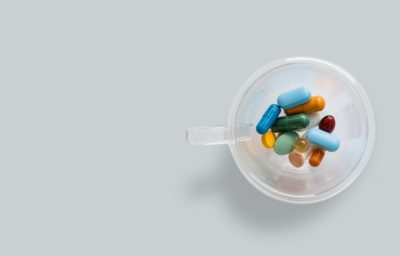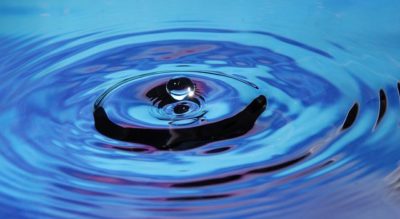More and more women are realising that a plant-based diet is a healthy way to eat during pregnancy and that there’s no reason to stop being vegan just because you’re pregnant [1].
What Vegan Foods Should I Eat When Pregnant?
- Following a vegan diet during pregnancy is a positive way to help ensure your unborn baby is given the best start, as many of the well-known foods to avoid are naturally omitted, such as fish, raw milk and cheese, soft and blue cheeses, deli meats, luncheon meats, hot-dogs and under cooked meats [2]. However, you must also take into account the foods that you will need to eat more of in order to give your baby all the nutrition they need.
- All vitamins and minerals are vital during pregnancy and eating a variety of foods including fruits, vegetables, plenty of leafy greens, wholegrain products, beans, nuts and seeds virtually ensures that you’ll meet most of your nutrient needs. However, there are certain nutrients you need to be more aware of as a vegan. Vegan mothers should make sure they have a reliable supply of Vitamin B12, iodine, and choline [3].
- The UK NHS recommends that all pregnant women take a supplement containing 400mcg of folic acid in the first trimester of pregnancy and 400 iu of Vitamin D, during the whole of pregnancy. Both of these, along with vitamin B12, can easily be obtained with this once daily supplement. [4]
- A baby’s nervous system develops before birth and in the first few months afterwards. Vitamin B12, folate, iodine, DHA (an essential fatty acid) and protein are all essential nutrients to assist with this, ensuring your baby has a healthy functioning nervous system.
Read on to find out more about these – and other – vital vitamins and minerals…
Vitamin B12
B12 protects the nervous system and prevents permanent damage such as blindness, deafness, dementia. Fatigue and tingling in the hands or feet, can be early signs of deficiency.
Thankfully, vitamin B12 is made by bacteria and does not need to be obtained from animal products [5].
There are only two reliable sources of vitamin B12 for vegans: foods fortified with this nutrient, such as plant milks and yoghurts, yeast extract, and B12 enriched nutritional yeast, and supplements [6].
Adults can store sufficient B12 to last 2-4 years but babies will not have yet built up their reserves, and so they MUST get adequate dietary vitamin B12. Without it, the infant can develop brain damage. When a breastfeeding mother is getting sufficient B12, her baby will receive enough through her milk.
In the UK, the NHS recommends around 1.5mcg per day for all adults aged 19 – 64[7]. In the USA, the recommended intake of vitamin B12 for pregnant women is 2.6 mcg, and for nursing mothers it’s 2.8mcg[8].
Some good sources of Vitamin B12 include:
- Yeast extract (such as Vegemite, Marmite)
- Fortified nutritional yeast flakes
- Fortified breakfast cereals
- Fortified plant milks and yoghurts
It is recommended that we all:
- Take a B12 supplement daily – A good quality vitamin or multi-vitamin that includes 25 – 100 mcg of vitamin B12 should be sufficient.
- Eat two servings of fortified foods daily.
There’s not currently enough evidence to know exactly what the effects of taking daily high doses of Vitamin B12, but it’s understood that taking 2mg or less each day is unlikely to be harmful[7]. It’s not recommended to take higher doses than this, and if you’re really worried about it, always seek professional advice.
Vitamin D
The sun’s rays provide ultraviolet B (UVB) energy, and the skin uses it to start making vitamin D, making sunshine one of the key sources of Vitamin D!
Breast-fed babies are at high risk for vitamin D deficiency so it is crucial that breast-feeding mothers have adequate levels, particularly if they live in the more northern parts of the hemisphere where the sun is weaker for much of the year. A deficiency in vitamin D, can have an effect on the development of your baby’s bones.
The British Department of Health recommends that all babies – not just those born to vegan mothers – have vitamin D drops from birth to make sure they get enough. Babies who are having more than 500ml (about a pint) of infant formula don’t need the vitamin drops because formula is already fortified with vitamins[9].
If you’re unsure about any of this, ask your doctor for more information on a suitable dose for your baby and ensure not to give them more than what is recommended.
Calcium
Calcium helps your baby’s teeth to develop. Even though they don’t appear for some time after birth, teeth develop during your pregnancy, along with your baby’s skeleton. Babies born at full term contain approximately 20g – 30g of calcium, most of which is laid down during the last trimester [10]. As this is the peak time for bone growth, your baby will need 200 – 250 mg of calcium every day.
In order to compensate for the additional calcium requirements during this time, your body doubles its absorption! Despite this, the recommended dietary allowance of calcium remains the same during pregnancy as in pre-pregnancy – 700mg per day. Experts don’t consider that any incrrease is necessary during pregnancy[10], so as long as your calcium levels were good beforehand, and you are continuing with a similar diet, then you should be okay. Be sure to get these levels checked if you are unsure.
Good vegan calcium sources:
- Green vegetables, such as kale, broccoli, Chinese cabbage, bok choy, collard greens
- Nuts, especially, almonds
- Seeds, including tahini
- Fruits, such as figs, and fortified fruit juices
- Fortified tofu and soya beans
A note on calcium and sweet potatoes:
Often, these are said to include good calcium levels, but the oxalic acid present in these foods affects the amount of calcium your body is able to absorb from them
Iron
During pregnancy your body’s requirements for iron and zinc are high. It’s recognised that if iron stores are inadequate at the start of pregnancy, it may be necessary to take supplements.
In practice, many women are prescribed iron supplements during pregnancy anyway, and may also be given dietary advice to help them increase their iron intake[10]. Most nutritionists advise any pregnant woman to take a good quality iron supplement during this time, just to be safe, as it’s not always easy to meet this need.
Good vegan sources of iron:
- Dried beans
- Soy products
- Dark green leafy vegetables
- Whole grains
- Blackstrap molasses
- Sea vegetables
- Fortified breakfast cereals
During pregnancy, iron not only assists your body with its usual role of helping red blood cells transport oxygen around the body, it also helps deliver oxygen to your baby. During pregnancy, particularly during the second and third trimesters, your body’s blood supply increases by 40 – 50%. So to make this extra blood, you need a lot more iron!
Naturally, a woman’s body absorbs iron better during their pregnancy, so take advantage of this by stocking up on iron rich plant-based foods and letting nature work it’s magic!
The reason why vegans struggle to get enough iron during pregnancy is that the form of iron found in plant-based foods, known as non-heme iron, is not as easy for the body to absorb as some forms found in meat products (heme iron). The institute of Medicine suggest that vegetarians should have 1.8 times more iron than meat eaters to compensate for this.
While you may have to think more carefully about this one, it’s perfectly viable to get just what your body needs during your pregnancy on a vegan diet. Endeavor to make good food choices, speak with your healthcare provider and keep a stock of good quality vegan iron supplements.
Zinc
The recommended daily intake of zinc for women is 7mg, and 9.5mg per day for men[11].
Some foods such as wholemeal bread, pasta and rice contain substances known as phyates, and they inhibit zinc absorption, so it is important to take this into account, especially during pregnancy. Needs for vegans may actually be 50% higher than the recommended daily intake.
According to some studies, intake of zinc should be increased when on a vegan diet to between 12 and 16.5 mg a day[13].
Good vegan sources of zinc include:
- Tofu
- Tempeh
- Legumes
- Grains
- Nuts
- Seeds, especially pumpkin seeds
- Fortified products, including breakfast cereal and meat substitutes
Iodine
Iodine is needed for healthy thyroid function which regulates metabolism. Iodine deficiency during pregnancy and early infancy can result be serious, and impair both physical and mental growth and development.
Sea vegetables are one good source of iodine in vegan diets, although the amount varies greatly, and some types may actually contribute excessive amounts of iodine. The most reliable source of this nutrient is iodized salt – or an iodine supplement.[14]
Omega-3 and Omega-6 Fatty Acids
There are three types of fat in our diet: saturated, monounsaturated and polyunsaturated fat. Saturated and monounsaturated fats are called non-essential fats, as our bodies can make all they need of these. Polyunsaturated fats, however, are essential fats that we need to obtain from our diets, and there are two types: omega-6 and omega-3 fatty acids.
Good sources of omega-3 are:
- Ground flaxseeds, also known as linseeds – 1-2 tbsp a day should supply your needs
- Chia seeds – 2 tsp
- Walnuts and walnut oil – 4 halves or 1 tbsp
- Rapeseed oil, also known as canola oil is richer in omega 3 fatty acids than other neutral tasting oils so use this when you need a plain oil. Otherwise extra virgin olive oil is recommended for its other nutritional properties.
Omega-6 fatty acids can be obtained from:
- Sunflower oil
- Safflower oil
- Soya oil
According to the World Health Organisation and European Food Safety Authority, you should get at least half a percent of your calories from the short-chain omega-3 ‘ALA’ in the food sources above. Your body can then elongate it into the long-chain omega-3s ‘EPA’ and ‘DHA’ that are found in fish fat. The question, however, is whether the body can make enough for optimal brain health. Until we know more, expert on plant-based nutrition, Dr Greger recommends taking 250mg of pollutant-free long chain omega-3s 2-3 times per week. (These are obtained from algae; which is exactly where fish get their omega-3 from!).
Easy omega cheats:
- Flaxseeds are great in smoothies, over muesli or cereal, and can be used in place of eggs in baking.
- Add walnuts, ground flaxseeds or chia seeds to plant- based yoghurts or muesli.
- Western diets tend to have a high ratio of omega-6 to omega-3 fatty acids, and it is often higher in vegans. It is essential to obtain a regular supply of omega-3, as it is essential for our bodies to function. Try and increase your intake on omega-3 and control your intake of omega-6 fatty acids.
This Nutrition page has been fact checked by the Spoon Guru Nutrition Team
Useful Online Resources
- NutritionFacts.org
- Vegetarian Nutrition Dietetic Practice Group
- Vegan Pregnancy and Parenting Community
- Vegan Pregnancy and Parenting Group
References
Davis, B. RD & Melina, V. MS, RD (2014) Becoming Vegan: Express Edition. / Becoming Vegan: Comprehensive Edition. Book Publishing Company Canada.
[1] Mangels, R. (2011) The Everything Vegan Pregnancy Book. F&W Media, USA.
[2] Dr. Fuhrman (2004 – 2016) Pregnancy. [Online]. Available from: http://www.drfuhrman.com/disease/pregnancy.aspx
[3] VeganHealth.org (2003 – 2016) Pregnancy, Infants & Children. [Online]. Available from: http://www.veganhealth.org/articles/preginfchil#pregnancy
[5] Norris, J. (2003 – 2016) Vitamin B12: Are You Getting It? [Online]. Available from: http://www.veganhealth.org/articles/vitaminb12
[6] The Vegan RD (no date) Vitamin B12: A Vegan Nutrition Primer. [Online]. Available from: http://www.theveganrd.com/vegan-nutrition-primers/vitamin-b12-a-vegan-nutrition-primer
[7] https://www.nhs.uk/conditions/vitamins-and-minerals/vitamin-b/
[8] https://ods.od.nih.gov/factsheets/VitaminB12-HealthProfessional/
[9] https://www.nhs.uk/live-well/healthy-body/bone-health-in-children/
[10] https://www.nutrition.org.uk/attachments/104_Nutrition%20in%20pregnancy.pdf
[11] https://www.nhs.uk/conditions/vitamins-and-minerals/others/
[12] The Vegan Society (2016) Zinc. [Online] Available from: https://www.vegansociety.com/resources/nutrition-health/vitamins-minerals-and-nutrients/zinc
[13] https://www.researchgate.net/
[14] VeganHealth.org (2003 – 2016) Iodine. [Online]. Available from: http://www.veganhealth.org/articles/iodine

